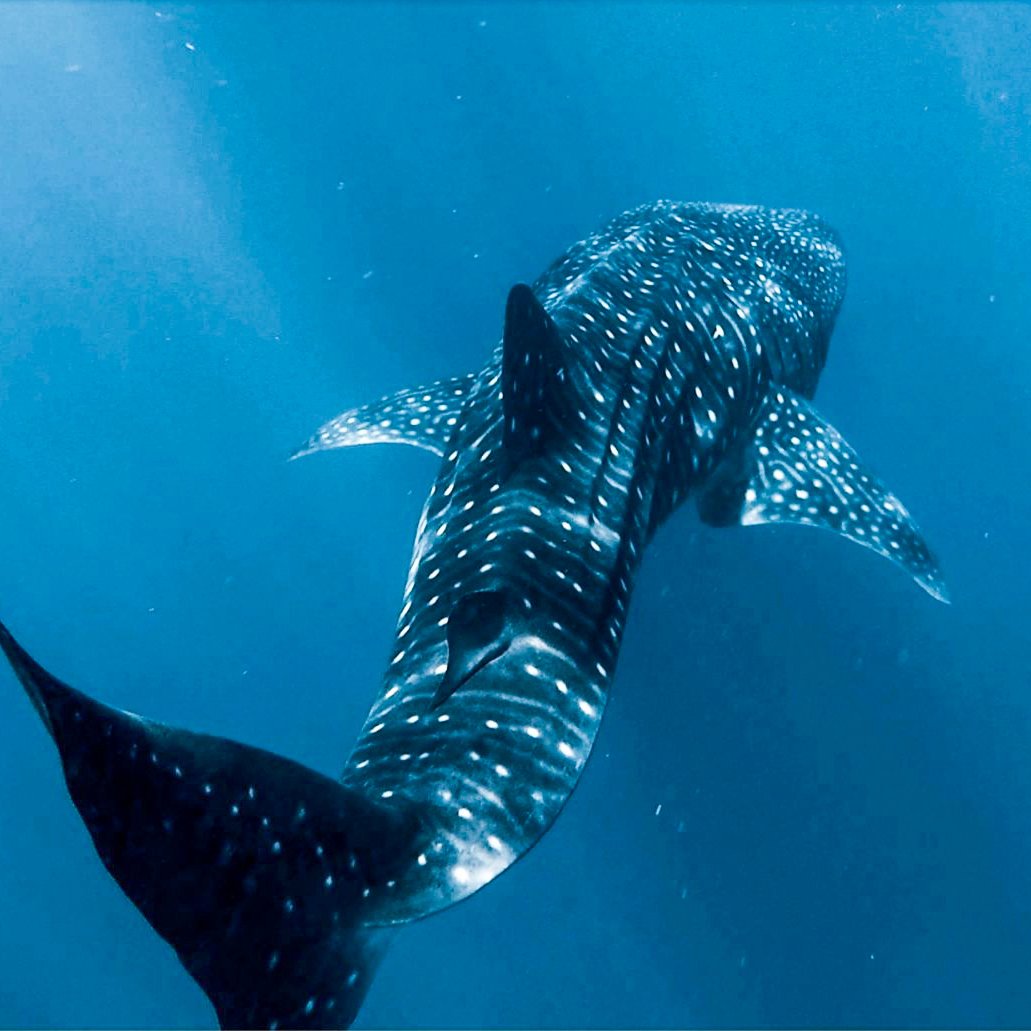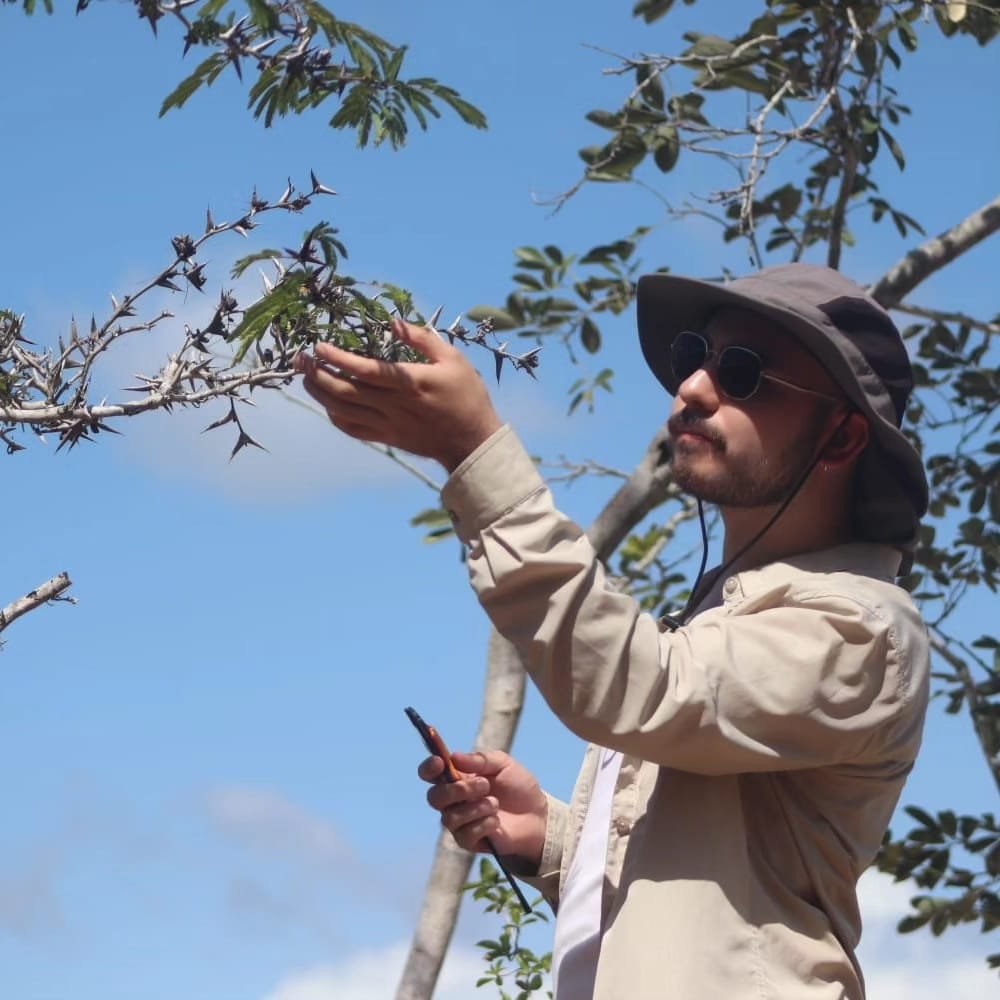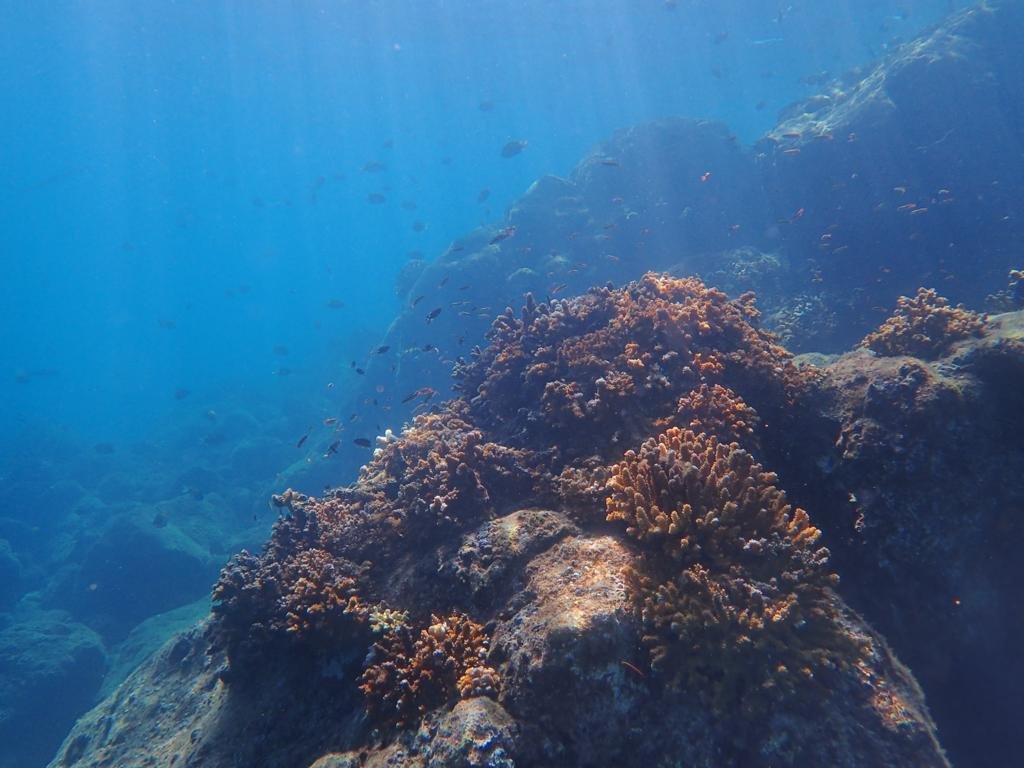
Overview
Smithsonian Staff Scientists are excited to have RaMP-UP Fellows participants join their projects. Below are abstracts of the 2024 projects that RaMP-UP Fellows could join and the skills that the projects are looking for in applicants.
#1 Tropical Sharks
Diversity, distribution, and ecological role of sharks in the Tropical Eastern Pacific using environmental DNA
Project abstract: Marine Protected Areas (MPAs) are a strategy for protecting and managing shark populations but they are often designed without sufficient information on the biology and ecology of sharks. For MPAs already in place, uncertainty remains regarding which species benefit and how. In this project, we capitalize on the genetic material that sharks release in the surrounding seawater in the form of blood, mucus, and waste (environmental DNA or eDNA) to ask questions that are critical to advance shark conservation. The RaMP-UP fellow will integrate into a diverse and highly dynamic research team to conduct sample collection, and molecular data analyses to advance the goals of this project.
Requested Skills: Basic molecular genetic laboratory skills (preferred but not required); knowledge of statistical and quantitative methods (preferred but not required); knowledge of programming language R (preferred but not required); ability to work with groups of people from diverse backgrounds; commitment to science communication and public outreach; and ability to communicate in Spanish.
#2 Behavior of Bats
Navigating the shifting skies: How do acoustic specialists respond to an increasingly light and noisy world?
Project abstract: With substantial increases in urbanization across the globe, natural habitats are becoming fragmented and lost at a rapid rate. Those that remain suffer a wide variety of pollutants, including sensory pollutants in the form of increased noise and light levels. Through behavioral experiments with bats in captivity, we investigate the role of increased noise and light on the foraging success and social interactions of tropical bats. We also observe the natural behavior of these bats in the wild through infrared video recordings and ultrasonic microphones. RaMP-UP fellows will join a large, diverse research team (www.noseleaf.org/team.html) and will learn a wide range of skills including how to 1) capture and identify bats in the tropical rainforest; 2) design and conduct controlled experiments in a flight cage; 3) record and analyze video and acoustic data.
Requested Skills: Ability to work at night (and sleep during the day!); ability to work with groups of people from diverse backgrounds; curiosity in learning new concepts and addressing novel questions; commitment to community engagement and science engagement.
#3 Ants
The acacia-ant mutualism: Novel behaviors and plasticity of traits
Project abstract: Swollen-thorn acacia plants coevolved with ants in an obligate association. The interaction is mutualistic with some ant species and parasitic with others. During an internship in this project, you can work with ant behavior, ant or plant anatomy, and the behavior of organisms that chose the ant-defended acacia as their home. We aim to understand plasticity in ant and plant traits, and convergence or divergence in other organisms' strategies to live with the ant-acacia mutualism.
Requested Skills: Appreciation of forest ecology, behavior, evolution, or related fields; basic knowledge of Excel or similar software package; some knowledge of statistical and quantitative methods like R is preferred but not required; understanding the importance of attention to details of the littlest things; willingness to work outdoors in uncomfortable conditions, including heat, sun, or light rain, or in the darkness at night; ability to work with groups of people from diverse backgrounds; and commitment to science communication and public outreach.
#4 Coral Reef Biodiversity
Modeling coral reef biodiversity: Commonness, rarity, and species coexistence
Project abstract: Understanding why some ecosystems have many species, and others very few, and why some species are extremely common and widespread, and others very rare, has been one of the most profound and challenging fundamental problems in ecology. Moreover, developing and testing biodiversity theory that seeks to explain these patterns is critical to anticipating and managing for the effects of human-induced environmental change; for example: What are the consequences for biodiversity of habitat fragmentation and loss due to development? Within this program, successful applicants could employ mathematical modeling, statistical analysis of large data sets, or empirical approaches to understand how species coexist on coral reefs, how spatial and temporal patterns in the relative abundances of species in these communities are maintained, and on the consequences of interactions between species for the provision of key ecosystem functions.
Requested Skills: For projects involving modeling, applicants to this program should have a reasonably strong background in mathematics or statistics (for example, multivariate calculus and some experience with matrix algebra and/or differential equations), some experience with coding, and ideally a good working knowledge of ecology. However, projects can be tailored so that candidates can fill in some skills gaps during their project.
#5 Spiders
Spider Courtship: Communicating in a Variable World
Project abstract: Communication allows animals to manipulate the behaviour of other animals – from coordinating social defenses to deceiving prey. Successful communication requires transmission of a signal through the environment, therefore, the environment may play a significant role in the success and the evolution of animal communication. This project will examine how natural environmental variation and anthropogenic disturbances to the environment affect the communication of wolf spiders. Male wolf spiders court females using a combination of signals in different sensory modalities (e.g. visual and vibrational signals) that vary from one species to another. In addition, anthropogenic disturbances to the environment, such as light and noise pollution, have different effects on the communication of these different species. Fellows working on this project will investigate whether the use and success of particular types of signals are dependent on the signaling environment and will have the opportunity to collect various types of data, from field observations to experiments manipulating the signals and signaling environments of these spiders.
Requested Skills: Ability to work with groups of people from diverse backgrounds; Willingness to work outdoors at night and during the day, in hot and humid conditions; Commitment to science education and public outreach.
#6 Coral Reef Resilience
Reef Community Dynamics and Temperature Stress Response
Project abstract: The coral reefs of the Eastern Tropical Pacific thrive in a region that is very marginal for the growth of reefs. Despite this, historical data suggest that these reefs have a high capacity to recover after periods of highly stressful environmental conditions, such as those that cause coral bleaching. The Rohr Reef Resilience program (RRR) aims to discover if this previously-observed resilience is a robust characteristic of shallow-water coral reefs in this region, and, if so, to reveal the mechanisms – molecular, physiological, demographic, and ecological -- that underly this resilience. We combine video and photo-mosaic technology, visual surveys, assessments of the recovery of reef communities on artificial surfaces, physiological and biochemical analysis to assess corals’ health, as well as genomic analyses of coral hosts and the microbes that live in and on them to monitor ecological change along gradients of upwelling intensity and through time. This RaMP-UP program is linked specifically the components of the RRR focused on the study of the dynamics or coral communities, and the thermal stress responses of corals
Requested Skills: Foundation in principles of biology, ecology, and marine or aquatic systems. An openness to learn, work hard and work well with a diversity of team members. Project opportunities are diverse and can accommodate a range of fellow interests and abilities. For analysis and interpretation of photo-mosaics, some experience with coding (e.g., in R or Python) would be required.
#7 Coastal Communities
Cultivating Resilience: Aquaculture, Agency, and the Aspirations of Coastal Communities
Project abstract: Although generally associated with the farming of iconic fish such as tuna or salmon, aquaculture’s most promising species from an environmental sustainability perspective are those low on the food chain–seaweeds, shellfish, echinoderms, herbivorous fish. Yet, only a select few of these wildly diverse species have ever been considered for cultivation. This project will integrate such insights with Indigenous and local knowledge and findings from the social sciences and humanities to reimagine aquaculture as an adaptive strategy for a resilient future ocean. Such research will be co-produced in partnership with coastal communities that have expressed interest in exploring novel place- and nature-based aquaculture solutions centered on local priorities and wisdom. RaMP-UP Fellows will become key members of a small team of qualitative marine social scientists and gain experience in archival and field-based participatory research methods.
Requested Skills: Ability to work with groups of people from diverse backgrounds; commitment to science communication and public outreach; and ability to communicate in Spanish preferred but not required.
#8 Mangroves
Understanding how mangroves capture carbon
Project abstract: Mangroves are highly productive ecosystems that provide critical ecosystem services to coastal communities within the tropics and sub-tropics, including climate change adaptation and mitigation, and food security. As the world moves towards commoditizing blue carbon, it becomes increasingly important to document the amount of carbon currently held in different biomes AND understand how key rates influence variation in carbon stores in different types of ecosystems and in areas with different environmental conditions. In this project, we are documenting how the current carbon stores, carbon accumulation rate, sediment accretion rates, soil carbon origin, and decomposition rates vary in contrasting mangrove forests in Panama.
Requested Skills: Basic laboratory skills and training (especially bio-geo-chemistry work, preferred but not required); knowledge of spatial analysis, GIS or Google Earth Engine would be a plus; ability to work with groups of people from diverse backgrounds; commitment to science communication and public outreach.
#9 Tropical Forests:
Ecology of Disease in Tropical Forests: From Genes to Germs to Achy Breaky Hearts
Project abstract: While disease carries negative connotations, it is ubiquitous and a natural component of all biological systems. Indeed, in species-rich forests, phytopathogens (organisms able to cause disease in plants) can promote the overall health of the forest by preventing any single tree species from monopolizing limited resources, becoming overly abundant, and displacing other tree species. While phytopathogens are receiving increasing attention for their ecological and economic importance, we know relatively little about their taxonomy, epidemiology, and ecology in tropical forests. Thus, we ask: (1) How are microorganisms distributed across space, time, and hosts? (2) What combination of biotic and abiotic factors exclude certain species from otherwise suitable habitats? (3) What is the role of multi-host pathogens in the maintenance of tropical forest diversity? and (4) What are the causes and consequences of microbe-mediated tree death? Our work is timely and impactful across disciplines and within the breadth of this project, we have several sub-projects that RaMP-UP Fellows could engage in.
Requested Skills: Ability to work with groups of people from diverse backgrounds; Knowledge of experimental design and statistical methods preferred but not required; Knowledge of the R statistical language preferred but not required; Commitment to science communication and public outreach.
#10 Coral Reefs and Climate
Turning Up the Heat: El Niño Warming Effects on Top-Down Control of Reef Communities
Project abstract: With a changing climate, it is important to resolve how environmental forces intensify or moderate consumer interactions and change the distribution and abundance of marine species. Researchers are employing a rapid research response to measure how an extreme event, the 2023-2024 El Niño, will alter consumer interactions on Tropical Eastern Pacific (TEP) coral reefs. Following up on two consecutive years of experimental data during non-El Niño conditions, they will be able to compare how an extreme event and increased ocean temperatures alter predation and herbivory rates and how this in turn influences marine biodiversity and potential invasion by non-native species. The project builds international research and education by training early-career researchers in marine science. The project develops partnerships and fosters collaboration through an international network, which facilitates shared and integrated marine biosecurity solutions across the Americas, informing management of invasive marine species.
Requested Skills: Coming Soon
#11 Sea Slugs
Trophic strategies in solar-powered sea slugs across the Isthmus of Panama
Project abstract: Sacoglossans are unique herbivorous sea slugs that perform kleptoplasty. This essentially means that they acquire chloroplasts from algae, allowing these animals to harness energy directly from photosynthesis. This project will make use of the contrasting environments across the Isthmus of Panama to investigate how kleptoplasty affects Sacoglossan life-histories, their trophic niches, and the role of environmental conditions on the acquisition of nutrition and energy via kleptoplasty. The RaMP-UP fellow will join a multinational group of scientists across academic stages and will be connected with a broad network of natural and social scientists, science communicators, and artists spanning the globe. The fellow will gain transferable skills in tropical marine research, including the collection of shallow-water marine biological material, fundamental taxonomy, the gathering and analysis of ecological and environmental data, conducting controlled experiments, and measuring and analyzing stable isotope data, as well as tools for science communication.
Skills needed: A passion for marine science; willingness to work outdoors and ability to execute basic lab work; knowledge of statistical and quantitative methods (preferred but not required); willingness to learn skills including stable-isotope ecology and programming languages such as R; ability to work independently and with groups of people from diverse backgrounds and disciplines; a commitment to science communication and public outreach.
#12 Vertebrate Diversity
Genetic Diversity of Vertebrates in the Panama Canal Region
Project abstract: The fauna of Central Panama has changed dramatically over the past century. Initially, the construction of the Panama Canal connected the Atlantic and Pacific Oceans for ship transit. Increased ship traffic over time and the expansion of the Canal in 2016 brought additional changes, including increases in salinity and more opportunities for invasion in Gatun Lake and across the Isthmus. Today, metabarcoding techniques using environmental DNA are commonly used to evaluate species distributions and interactions and we are using these techniques to evaluate changes in biodiversity in the region. However, the success of these studies depends on the availability of locally relevant reference databases. This project seeks to fill gaps in existing sequence databases, focusing on vertebrate fauna of the Panama Canal region. The RaMP-up fellow will work with skeletal remains in the STRI Vertebrate Osteology reference collection and process samples for DNA sequencing to help build reference databases.
Requested Skills: Interest in and basic knowledge of vertebrate zoology; basic molecular genetic laboratory skills (preferred but not required); knowledge of statistical and quantitative methods (preferred but not required); ability to work with groups of people from diverse backgrounds; commitment to science communication and public outreach.












